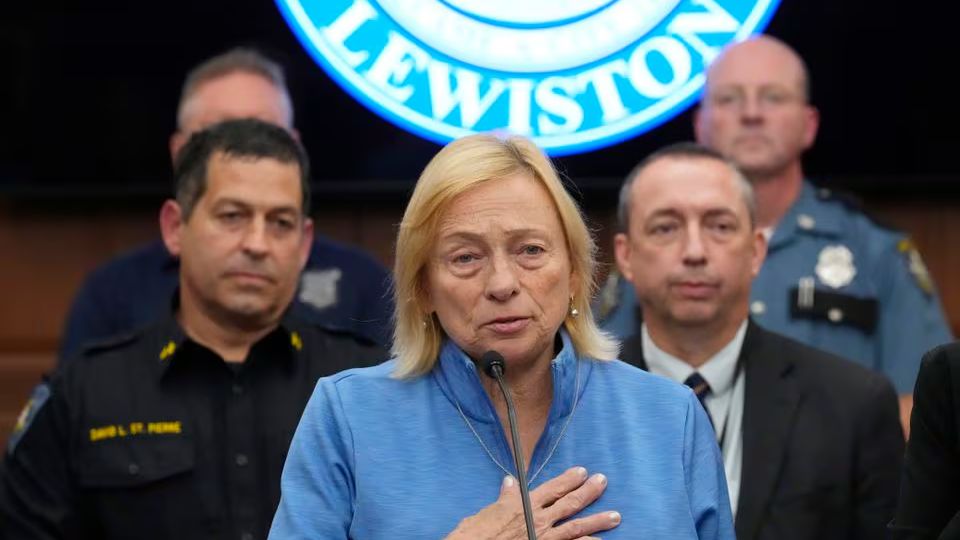Maine Governor Janet Mills, who is a Democrat, announced on Monday that she will allow one of the remaining two gun safety bills to become law without her signature. This particular bill involves implementing a waiting period for gun purchases. The decision comes in response to the recent mass shooting in Lewiston.
The governor said that she will allow a 10-day period to pass without signing or vetoing the 72-hour waiting period bill. This means that the bill will become law without any action from her. The law will start to be enforced this summer.
The governor announced on Monday that she has rejected a ban on bump stocks. This ban would have applied to a device that can be attached to a semiautomatic rifle, enabling it to shoot like a machine gun. A gunman used a device called a bump stock during the 2017 Las Vegas shooting. This shooting resulted in the deaths of 60 people and injuries to 869 others.
The 72-hour waiting period for gun sales faced strong opposition from Republicans who argued that it would limit the rights of individuals who wish to exercise their constitutional right to purchase a firearm. Maine hunting guides mentioned that this could also reduce the number of guns sold to hunters from other states who visit Maine for short trips and purchase a gun while they are here.
Mills said she will let the waiting period become a law, but she has some concerns. She plans to take steps to ensure it is implemented properly, such as having the state’s attorney general and public safety commission monitor legal challenges to waiting periods in other states. “This is a topic that many people have strong feelings about, and there are convincing arguments on both sides,” Mills said in a statement.
Also Read: Starbucks is Leaving New Jersey City Despite the Mayor and Governor’s Pleas
The bills were passed by lawmakers in response to the deadliest shooting in the state’s history. The shooting occurred on October 25th in Lewiston, where an Army reservist killed 18 people and injured 13 others at a bowling alley and a bar and grill. The person who shot others was later found dead from shooting themselves.
Mills explained that she rejected the bump stock proposal because she believed that the wording of the bill and the process used to create it could lead to unintentional errors.
The governor has already signed a bill that she supported. This bill aims to make the state’s yellow flag law stronger, increase background checks for private gun sales, and make it illegal to sell a gun to someone who is not allowed to have one. The bill provides money for programs that aim to prevent violence and for centers that help people in mental health crises.
Lawmakers did not vote on a bill known as a red flag bill. Red flag laws, which have been passed in over 20 states, give the option for a family member to request the removal of someone’s guns during a mental health crisis.
The state’s yellow flag law is different because it gives police the main role in the process. However, the law was changed to allow police to request a warrant from a judge in order to take someone into protective custody.
This removes a barrier that prevented police from meeting with a person to determine if they needed protective custody. This was an issue when the Lewiston gunman refused to answer the door during a police welfare check over a month before the shootings. The officer stated that no crime had been committed and that he did not have the power to resolve the matter forcefully.



Leave a Reply